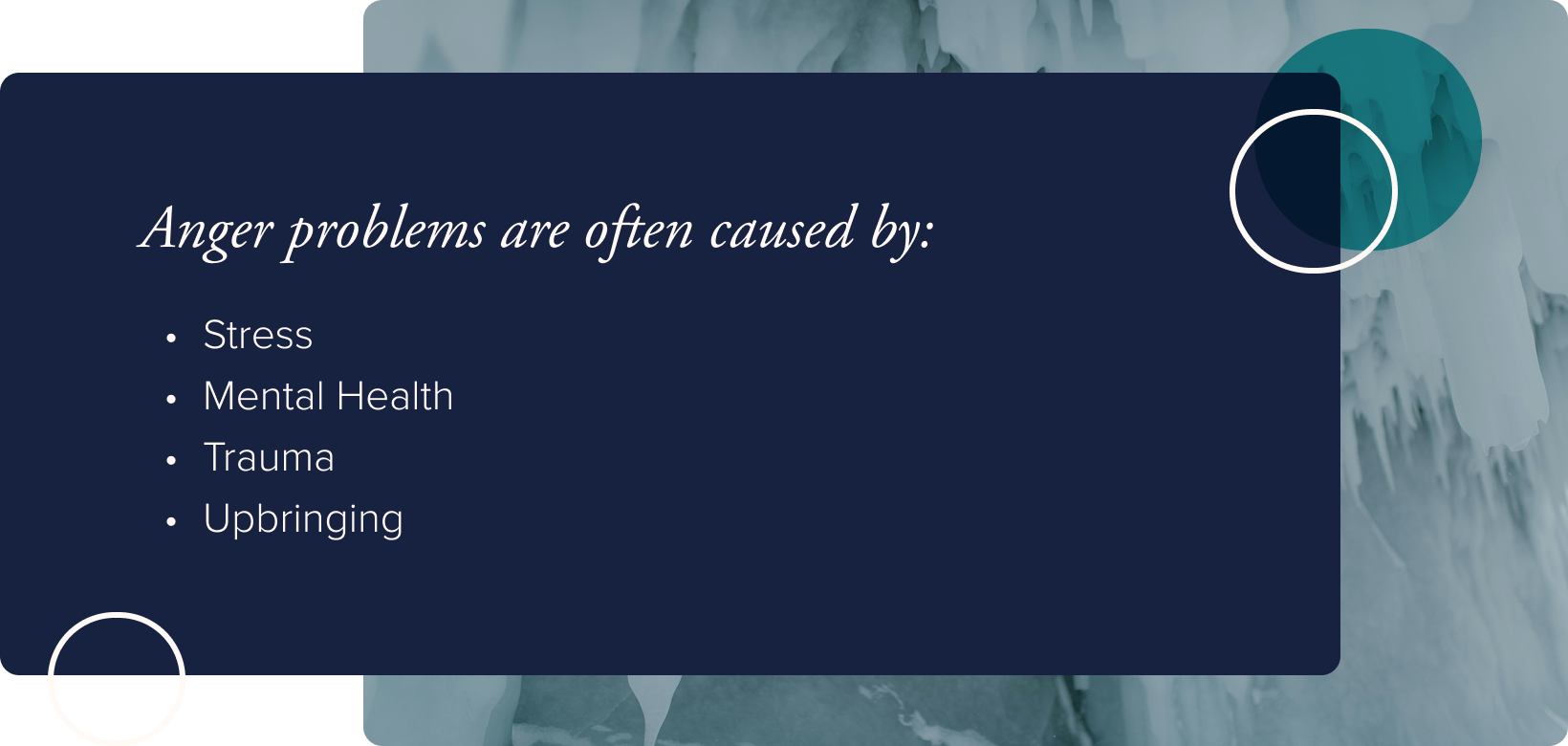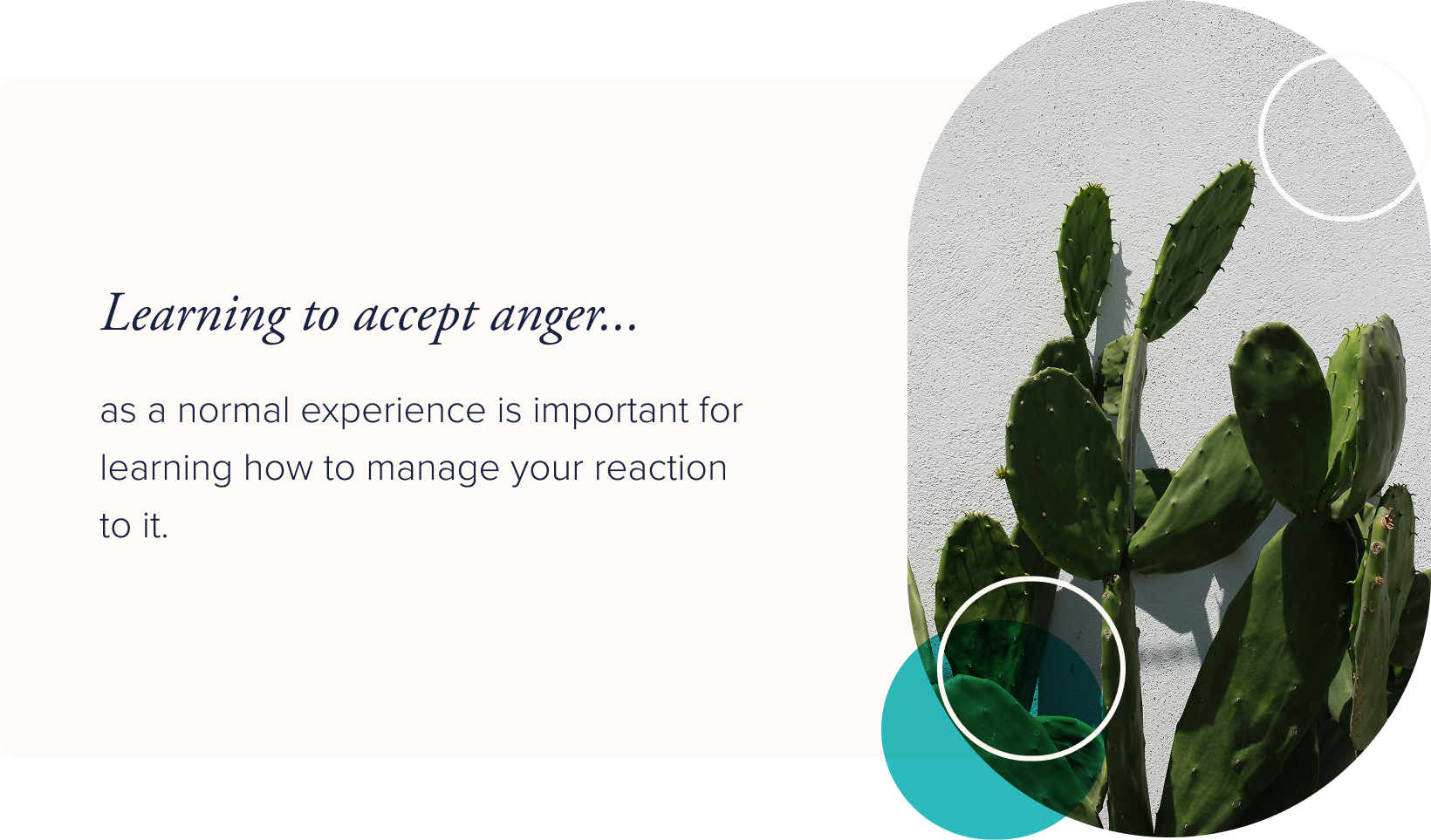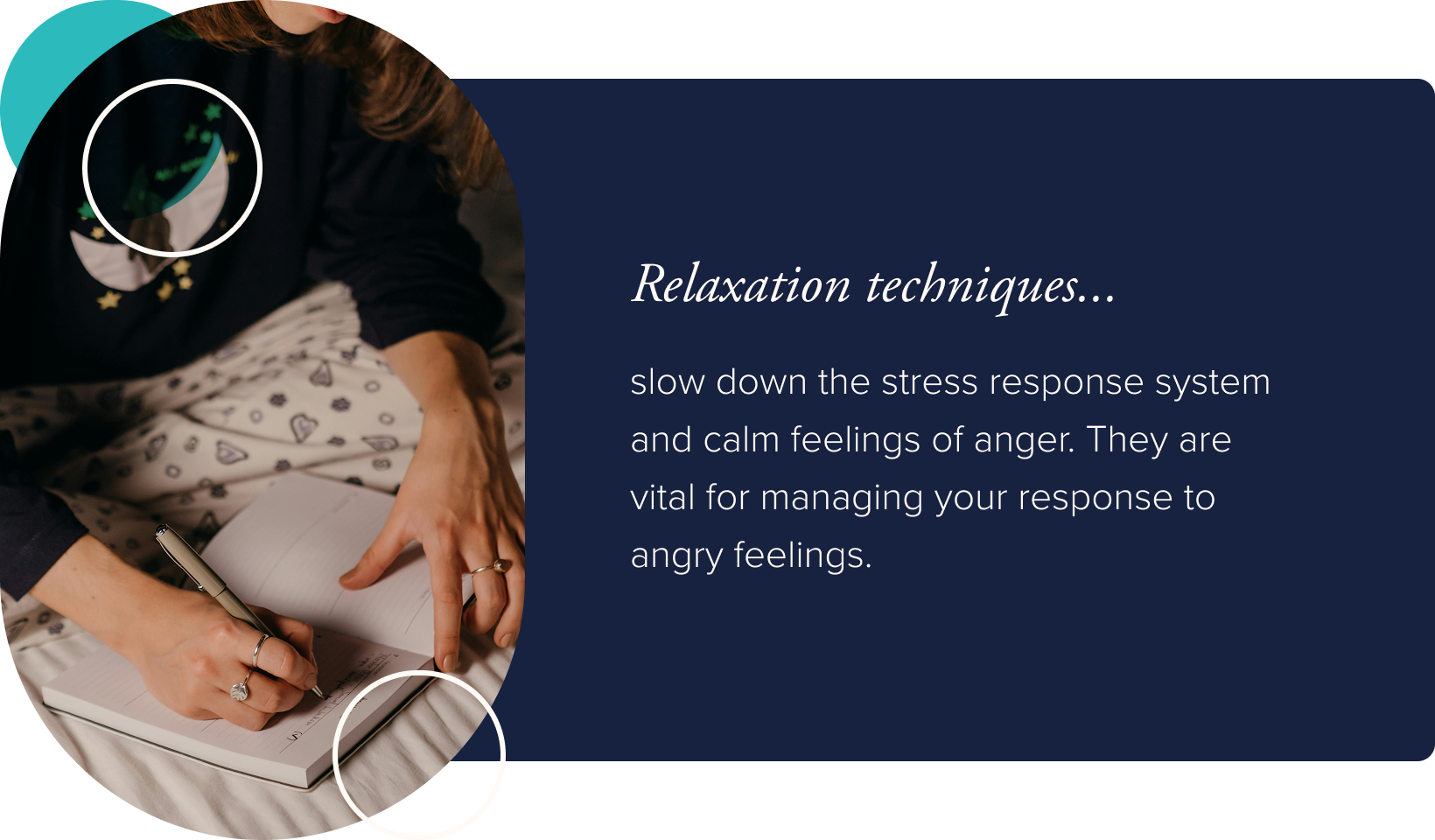
What Causes Anger Problems?

One-on-One Counseling in Arizona for Life's Challenges
Every day is a chance to start over. Our trauma-informed therapists will meet you where you are — in person or online — so you can process your experiences and become the person you want to be.
There are normal, totally logical reasons to be angry:
- Politics
- Someone cuts you off in traffic
- Being wrong
- Witnessing someone else being wronged
However, not all anger is logical and can be disproportionate to the reason for the anger. For example, punching a hole in the wall is not a healthy or typical response to someone accidentally stepping on your toe.
The issue in the example above isn’t that they’re angry about someone stepping on their toe; it’s their response to the anger they felt. Using violence or mean words to cope with anger is unhealthy, but many people feel like they can’t help their response to angry feelings.
In this article, we’ll talk about why many people experience anger problems and how you can take control of your anger and develop healthy responses.
Reasons for Anger Problems
Experiencing frequent bouts of anger can be troublesome. Especially when you don’t know why they occur. The good news is, anger isn’t an uncommon emotion, and many of its causes have been well documented.

Stress
Anger is a common manifestation of the body’s stress response. When a threat is perceived, the body prepares itself by engaging its stress responses. This includes heightened awareness, increased heart rate and blood flow, and muscle tension.
Stress response is important for basic survival, but it’s also associated with emotional dysregulation. This leads many people to experience anger and act out upon it.
Some people who are experiencing irregular episodes of anger may be dealing with a chemical imbalance in their nervous, endocrine, or immune system. Chronic stress is also a common cause of anger.
Mental Health Issues
Some mental health issues list irritability or anger as a symptom. These issues make regulating and controlling anger very difficult.
Mental health issues that have a prominent symptom of anger include:
- Intermittent explosive disorder
- Borderline personality disorder
- Bipolar disorder
- PTSD
- ADHD
- Anxiety
- Depression
Each of these will manifest anger in different ways and for different reasons. For example, ADHD and anger issues often go hand in hand due to the emotional dysregulation and frustration tolerance that many people with ADHD experience.
Trauma and Upbringing
Trauma has a way of creating persistent effects that last into adulthood. That’s because memories of traumatic events are stored properly. They’re like unsorted files sticking out of a cabinet-impossible to forget.
One of the symptoms common to PTSD is a heightened state of arousal. It’s that feeling of always being “on” or ready for anything. It’s tiring and emotional dysregulation is not just common, but to be expected.
Upbringing, which plays a role in trauma, also contributes to anger issues. Children spend most of their time learning, but not academics. Children observe their parents, friends, and family members and learn from their actions.
Related Article: How an Abusive Childhood Affects Adult Relationships
Angry homes often produce angry children.
When anger is commonplace in a home, it’s difficult for children to model healthy emotional regulation. Instead, they model the anger they witness. This follows into adulthood and makes it challenging for people who experienced this to regulate and control their anger as adults.
Related Articles: Intergenerational Trauma, Complex Trauma,
Anger is Normal
Anger is ok and normal to experience. You shouldn’t feel guilty for feeling angry from time to time.
However, responding violently or being rude to others is not ok. You may not be able to control when you feel angry, but you can work on improving your response to those feelings.

How to Control Your Anger
In some situations, anger is to be expected, and for some, anger becomes harder to control due to mental health issues and trauma. However, anger can be controlled or managed with emotional regulation and mindfulness.
For some, learning how to regulate emotions is practically impossible. However, they can learn ways to manage their anger according to their ability.
Accept Your Anger
The first step is to accept the fact that anger is a regular and normal emotion to experience. If you try to eliminate angry feelings altogether, you’ll only get caught in a never-ending battle.
The best way forward is to accept that you will feel anger throughout your life, and there will be times you respond to anger poorly.
Once you’ve accepted your anger, it’s time to start working on creating a healthier response to anger.
Know What Makes You Mad
Triggers, and getting better at identifying what makes you mad
If you know what makes you angry, you’ll be better equipped to manage your response. Doing this will require a healthy dose of mindfulness. Use tools and meditative practices to help you better understand what triggers your anger.
- Journaling
- Meditation
- Mindfulness movement
A lot of activities can be considered “mindful”. The key that makes an activity mindful is being fully engaged in the current moment. That means removing any distractions and judgment.
While trying to better understand your triggers, it’s important to take an honest, nonjudgemental look at yourself. This can be easier to do with the help of a trained counselor or therapist. Inner Balance Counseling can help you better understand yourself and build healthy coping skills to help you build the life you want.
Request a consultation and seek a more mindful and healthy future.
Learn and Use Relaxation Techniques
Anger often manifests as an unstoppable wave. Once it starts, it’s hard to reel it back in. However, when you practice relaxation techniques before feeling angry, it becomes much easier to implement them when you become angry.
Relaxation techniques are highly beneficial for emotional regulation and can help enhance your response to feelings of anger. Relaxation techniques:
- Decrease blood pressure
- Slow the activity of stress hormones
- Enhance focus and improve mood
- Lessen anger and frustration
- Boost confidence to handle problems

Common relaxation techniques include:
- Breathing exercises: Deep breathing slows down the body and triggers the parasympathetic system, which creates a sense of calm. Breath slowly through your nose and out your mouth, focusing on the rise and fall of your breath.
- Stepping away from the situation: Intentionally leaving a situation to cool off is a helpful tool for regulating emotions. However, it should be communicated why you’re leaving.
- Guided Imagery: Escapism is a helpful way to calm down in the face of a situation that’s making you angry. This technique is often accompanied by breathing exercises. Slow your breathing, close your eyes, and imagine a peaceful scene.
It’s recommended to practice relaxation techniques before and while feeling angry.
Related Articles: Stress Management
Communicate Boundaries
The people who are most affected by your anger should be made aware of your boundaries. While learning about your triggers and practicing relaxation techniques, you’ll hopefully discover boundaries that help you avoid acting out in anger.
Maybe you need to step out when you start to feel angry, let the people closest to you know that that may happen in the future. This will help build a support system and decrease any confusion in the future.
Seek Professional Help
Anger issues shouldn’t be handled alone. If you’re struggling to manage your anger, then professional help may be a good option for you.
While attending counseling, you’ll work through trauma, identify cognitive distortions, and build healthy coping skills.
At Inner Balance Counseling, we help people live the life they want by providing the care they need. We serve a wide variety of clients looking for all kinds of care. Request a consultation today to start your counseling journey.
Related blog articles
Sign up for our newsletter
Sign up with your email address to receive news and updates.
Get started
Request a consultation

-03%201.png)




